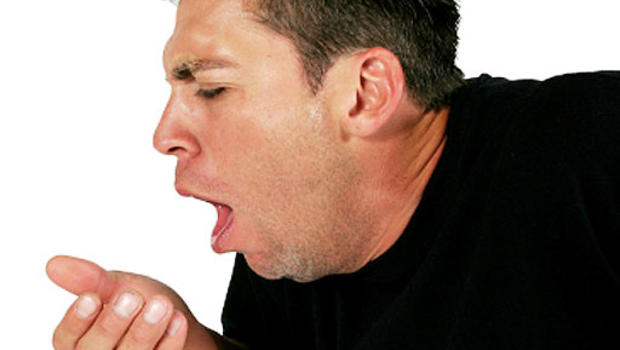


If you have phlegm or otherwise thick mucus in your lungs, you can have issues such as breathlessness or shortness of breath, and an increased chance of getting a lung infection like pneumonia. If you have a condition that makes it hard for phlegm to clear from the lungs such as cystic fibrosis, a spinal cord injury, or COPD, you may want to try airway clearance techniques such as those found here.

Instead of a hacking cough or clearing your throat, deep coughing uses less energy but is more effective for clearing phlegm from your throat and lungs. This technique uses the powerful stomach muscles to push air out and remove sticky, thick mucus.
You can also use several ‘mini’ coughs that are low in pressure, or huff coughing, instead of a single cough. This coughing can be used to help clear phlegm from your airways.
This technique of clearing mucus in lungs is often given by a respiratory therapist or caregiver. CPT or chest physiotherapy involves firmly but gently clapping on your back or chest with a cupped hand. This will help to loosen thick phlegm from your lungs.
Tips for Performing Chest Percussion
Tips for Performing Back Percussions
This means choosing different lying down positions to clear the phlegm in lungs. These positions should be held for about 5 minutes each. It’s best to be done about half an hour after your inhaler. It is best done on an empty stomach and if you need to cough, sit up using the deep coughing technique.
Front Lung Drainage
Draining the Sides of Your Lungs
Draining the Back of Your Lungs
These medications are commonly used to specifically help loosen up mucus in lungs. This will allow you to cough up secretions and clear out your lungs more effectively. These medications come as prescriptions and over-the-counter ones and they include:
You can also use devices to clear phlegm from your lungs. Be sure to carefully follow the instructions and consult your doctor whenever needed. Some devices you can use include:
To insure your phlegm isn’t too sticky or thick, drink plenty of fluids through the day. Making sure you are well-hydrated during the day will help make it easier to cough up and expel the phlegm. You should try to drink about eight, eight-ounce cups of water daily, unless your doctor tells you differently.
You should also avoid beverages loaded with sugar such as fruit and soft drinks, as well as caffeinated drinks, because they can make more phlegm. Be careful with dairy because it will also increase your mucus secretions.
Inhaling steam will provide you with heat and moisture for your lungs, helping to break up mucus in lungs and chest. It is a simple process. Fill a large bowl with boiling water, and place a few drops of tea tree oil, peppermint oil, eucalyptus, or rosemary oil to it. Adding these oils will make a strong vapor that will provide relief as you breathe it in. Do this 4-5 times in a day.
Please note if you are coughing up blood, it may be a sign of a worsening infection such as pneumonia, cancer or tuberculosis. Please make sure to visit your doctor if you are coughing up phlegm with blood in it.